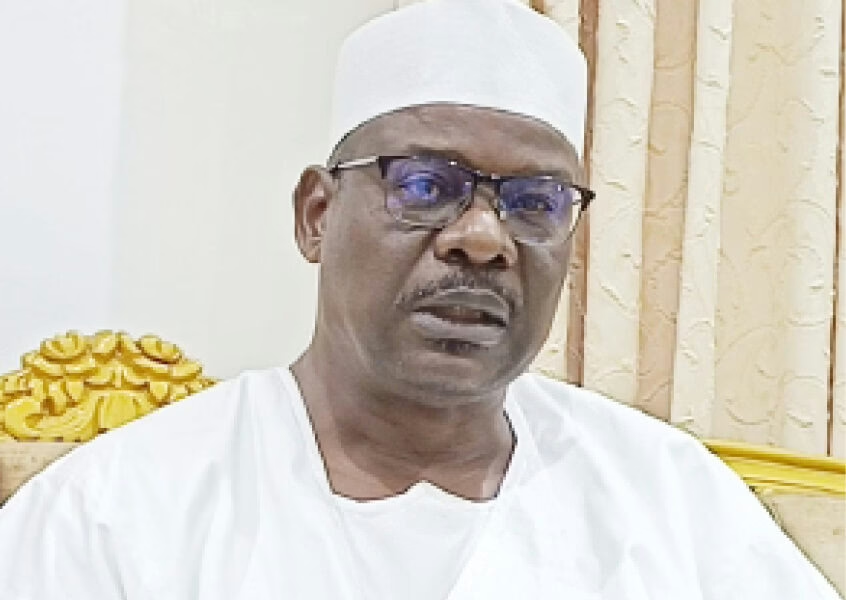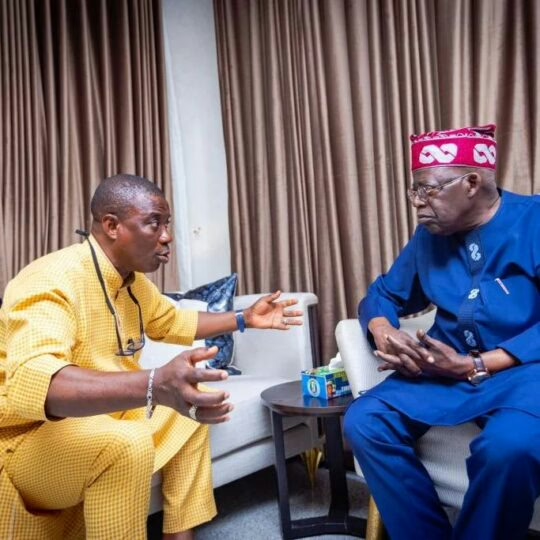Higher education in Nigeria, quite frankly, is facing immense challenges but these challenges are not insurmountable. Topmost on the long list of challenges faced by the sector include inadequate funding, poor infrastructure, poorly remunerated academics, outdated curriculum, bureaucracy, insecurity, among others. Over the years, these challenges have stemmed from a lack of visionary leadership and direction, neglect, incompetence, weak policy formulation and implementation, and population explosion. The outcomes have been unmotivated and uninspiring academics, brain drain, dilapidated infrastructure, and unemployable graduates.
At the recently concluded presidential cabinet retreat, President Bola Tinubu stated that “focusing on education, health and social investment are essential pillars of development.” I strongly agree with him. But to achieve the stated goal of Tinubu and his administration, especially in the educational sector, the Minister of Education, Prof. Tahir Mamman, and the Ministry of Education will need to consider some radical solutions and initiatives in overhauling the sector.
The welfare of academics needs to be taken very seriously by the current administration. This point cannot be overemphasised. Teaching is a noble profession. However, it seems in Nigeria that it is not. This is because we do not treat our lecturers like they matter. We do not treat them like we value them. A lot of our lecturers do a fantastic job, and we need to reward them for the excellent job that they do. If we don’t remunerate our academics adequately, morale will be at a low level, and we will not be getting the best out of those who decide to remain in the industry. This, in turn, will neither be good for students nor the nation. We need to significantly increase the budgetary allocation for the educational sector and pay academics adequately if the government wants to continue running these institutions.
It is the role of the state governments and Federal Government who own and run these universities, polytechnics and colleges of Education to ensure staff development. A mediocre lecturer cannot impact maximum knowledge because you cannot give what you don’t have. That being said lecturers need to recognise the role of personal and professional development. A lecturer cannot teach with notebooks from the 1990s and textbooks from the 2000s and blame that on the government.
I visited the Federal University of Technology Akure and the University of Lagos while I was in Nigeria between July and August 2023. Many buildings in these prestigious institutions have become dilapidated, teaching rooms lack basic equipment like projectors, and many hostels are simply unliveable. This has to change.
The world is changing. We should be ahead of the curve or at least not allow our educational sector to be left so far behind. When the COVID-19 pandemic started in the first quarter of 2020 all British universities were able to switch to an online mode of delivery for all teaching sessions. This transition was completed within a week or two. We need to invest massively in tech-enabled delivery of teaching and administration. We have what it takes to deliver on this. The Ministry of Communications, Innovation and Digital Economy, led by Dr Bosun Tijani, can work in partnership with the Ministry of Education to draw up a tech-enabled teaching delivery strategy.
A lot of our graduates are unemployable. Improving graduate employability should be a key priority of the Minister of Education. We need to take bold steps and change this messy situation. Tertiary education should not be about cramming, copying and pasting from textbooks. Nigerian universities, polytechnics and colleges of education should be assisting their students to gain valuable skills which might be useful in solving complex problems in the real world. Employers want to be sure that graduates can do the job and that they can fit into their organisations. Having the ability and capacity to do a job might not necessarily be a result of having a first-class degree or being a clever student. There are loads of first-class graduates who do not have the necessary employability and transferable skills. We should be paying attention to, and improving the employability of young Nigerians, using world-class standards. Skilled graduates will go on to contribute to economic development. Therefore, to create a more prosperous nation, improving the skills and employability of our graduates is essential and the Federal Government needs to prioritise investment in employability and enterprise skills development.
A lot of the curricula used across federal and state-owned higher institutions are outdated. There was a review of the minimum academic standards by the National Universities Commission a few years ago. What we didn’t see much of was the involvement of professional bodies and employers in the process. We need to refresh the entire higher education curriculum and embrace the current realities of an evolving global village. Teaching should be research-informed. Academics must engage in continuous research and professional development. The government should invest more towards research grants and attendance of international conferences by academics. They should also reduce the bureaucracy associated with accessing such grants and opportunities. Our students and graduates will be better off for this.
Our business schools should have links with companies and institutions within the country, Africa and even the rest of the world. More Nigerian students should have the opportunity to undertake in-company placements and internships between six months and one year as part of their course. This should enhance the development of practical skills which will be useful upon graduation.
Our engineering faculties should also have industry connections. Students should be allowed to experience first-hand manufacturing and innovative processes. The Student Industrial Work Experience Scheme needs to be revamped and re-energised. Through Knowledge Transfer Partnerships between our higher institutions of learning, we should be able to improve the competitiveness and productivity of Nigerian companies, provide our students with first-hand industry experience, and provide our academics with more research-led teaching experience.
Personal and professional development modules should be taught across higher institutions and career consultants and academic mentors should be engaged. They are needed to help individual students reflect on their aspirations, help them sharpen their skills, future career prospects, and help them reflect on how to adequately market themselves to organisations upon graduation.
Education is important in determining a nation’s competitive advantage and it is key to economic growth. A nation with a trained workforce stands a better chance of attracting significant foreign direct investment and achieving significant economic growth. The higher education sector in Nigeria is salvageable. There needs to be some significant changes to the sector to make it future-proof.
The nation’s higher institutions of learning should dig deep and increase their internally generated revenue. They should consider more investments in bookshops, conference centres, guest houses, printing press, university transport companies, student accommodation facilities, etc. They also need to improve the assessment and feedback process and ensure that their students have a voice. Also, the Federal Government should ensure that these institutions are safe and secure and that kidnapping and terrorism in these institutions are subdued.
As was recommended in one of the many presidential visitation panel reports, I urge the Federal Government to take proactive and pragmatic measures on the funding of the educational sector to have a sustainable structure for our national aspirations and development. We might be able to transform and record significant progress in the higher education sector in the next decade if we consider and implement some of these recommendations. Indeed, we can improve the outcomes and achieve success for all.











